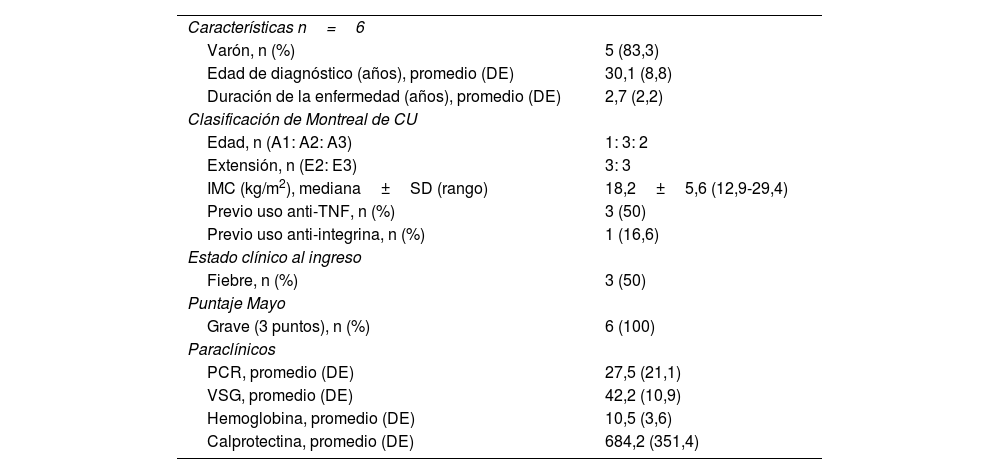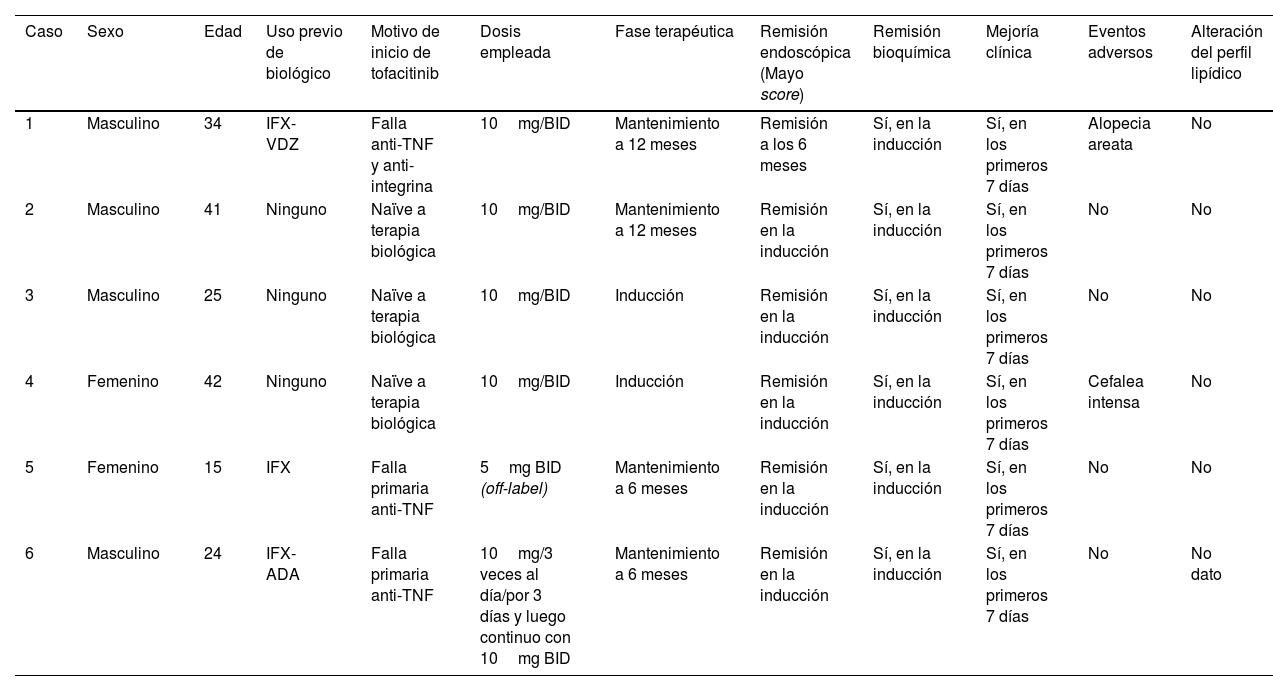Tofacitinib está indicado en los pacientes con colitis ulcerosa (CU) moderada a grave, no obstante, dado su rápido inicio de acción, puede constituir una alternativa en los pacientes con CU aguda grave (CUAG) hospitalizado. Sobre esta indicación hay pocos datos en la literatura. Se plantea como objetivo describir la eficacia y la seguridad de tofacitinib, en el manejo de los pacientes con CUAG hospitalizado, así como sus características clínicas y otros patrones de tratamiento.
Materiales y métodosEstudio observacional descriptivo de adultos y niños con CUAG, tratados con tofacitinib entre junio de 2019 hasta diciembre de 2022 en Colombia. Se recolectaron variables sociodemográficas y clínicas, se evaluó respuesta terapéutica en diferentes períodos de tiempo y se procedió a análisis descriptivo de variables cuantitativas y cualitativas.
ResultadosSeis pacientes (5 adultos y un pediátrico), con edad 33,2 promedio (SD: 8,5) años, con CUAG. Se obtuvo remisión de síntomas en el 100% de los pacientes al día 7 posterior al inicio del tofacitinib. En 3 pacientes se obtuvo información más allá de 6 meses, con remisión clínica, bioquímica, y endoscópica del 100% y sin requerir colectomía. En el caso de la paciente pediátrica se logró remisión de síntomas a la semana del inicio del tofacitinib, permaneciendo en remisión clínica, bioquímica y endoscópica más allá de 6 meses. No se reportaron eventos adversos graves en ninguno de los casos.
ConclusionesTofacitinib representa una alternativa terapéutica de rescate en la CUAG, con respuesta clínica rápida, tolerancia adecuada y menor necesidad de colectomía, siendo sostenida por períodos más allá de 6 meses.
Tofacitinib is indicated in patients with moderate to severe ulcerative colitis (UC); however, given its rapid onset of action, it may constitute an alternative in patients with hospitalized severe acute UC. There are few data on this indication in the literature. The aim of this study was to describe the efficacy and safety of tofacitinib in the management of patients with hospitalized UC, as well as its clinical characteristics and other treatment patterns.
Materials and methodsDescriptive observational study of adults and children with CUAG treated with tofacitinib between June 2019 and December 2022 in Colombia. Sociodemographic and clinical variables were collected, therapeutic response was evaluated in different periods of time and descriptive analysis of quantitative and qualitative variables was performed.
ResultsSix patients (five adults and one pediatric), mean age 33.2 (SD: 8.5) years, with CUAG. Symptom remission was obtained in 100% of patients at day 7 after tofacitinib initiation. In three patients information was obtained beyond 6 months, with 100% clinical, biochemical, and endoscopic remission and without requiring colectomy. In the case of the pediatric patient, symptom remission was achieved one week after starting tofacitinib, remaining in clinical, biochemical and endoscopic remission beyond 6 months. No serious adverse events were reported in any of the cases.
ConclusionsTofacitinib represents a rescue therapeutic alternative in CUAG, with rapid clinical response, adequate tolerance and less need for colectomy, being sustained for periods beyond 6 months.











